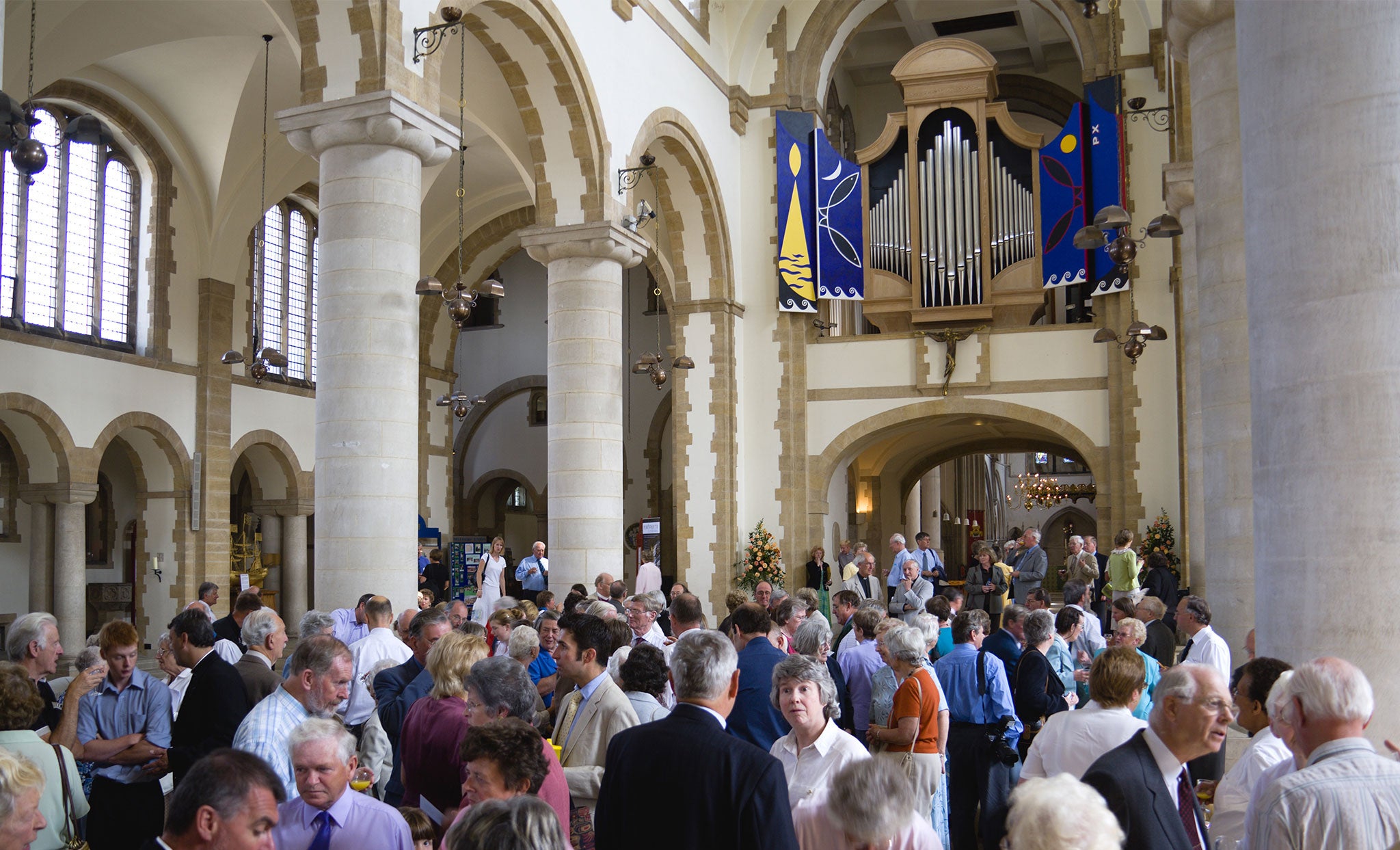Going to church 'has a positive long-term effect on mental health for elderly'
Study finds the only activity linked to 'sustained happiness' was going to a place of worship

Your support helps us to tell the story
From reproductive rights to climate change to Big Tech, The Independent is on the ground when the story is developing. Whether it's investigating the financials of Elon Musk's pro-Trump PAC or producing our latest documentary, 'The A Word', which shines a light on the American women fighting for reproductive rights, we know how important it is to parse out the facts from the messaging.
At such a critical moment in US history, we need reporters on the ground. Your donation allows us to keep sending journalists to speak to both sides of the story.
The Independent is trusted by Americans across the entire political spectrum. And unlike many other quality news outlets, we choose not to lock Americans out of our reporting and analysis with paywalls. We believe quality journalism should be available to everyone, paid for by those who can afford it.
Your support makes all the difference.Attending a place of worship, whether it be a church, synagogue or mosque, can have a positive long-term effect on mental health in over 50s, research suggests.
A study by Erasmus MC and the London School of Economics examined 9,000 Europeans over the age of 50 over a four year period. LSE epidemiologist Dr Mauricio Avendano said the only activity linked to “sustained happiness” was going to a place of worship.
“The church appears to play a very important social role in keeping depression at bay and also as a coping mechanism during periods of illness in later life. It is not clear to us how much this is about religion per se or whether it may be about the sense of belonging and not being socially isolated,” Dr Avendano said.
Joining a religious group was also found to be more beneficial to mental health than education, sport, charity work or joining political or community organisations, with the positive effects of the latter, accordingly being more short-term.
Although there have been previous studies to find that people involved with churches, clubs, sports teams and voluntary activities do enjoy better mental health than the rest of the population, Dr Avendano said that there has been little research on the effects of each specific activity.
He said: “Our findings suggest that different types of social activities have an impact on mental health among older people, but the strength and direction of this effect varies according to the activity.”
They study also found further variations across the continent: Southern Europeans have higher rates of depression than those in the same age category who live in Scandanavia and western Europe.
The researchers concluded that, in Europe, depression has less to do with the weather and more with other factors such as financial wellbeing and social relationships.
Join our commenting forum
Join thought-provoking conversations, follow other Independent readers and see their replies
Comments